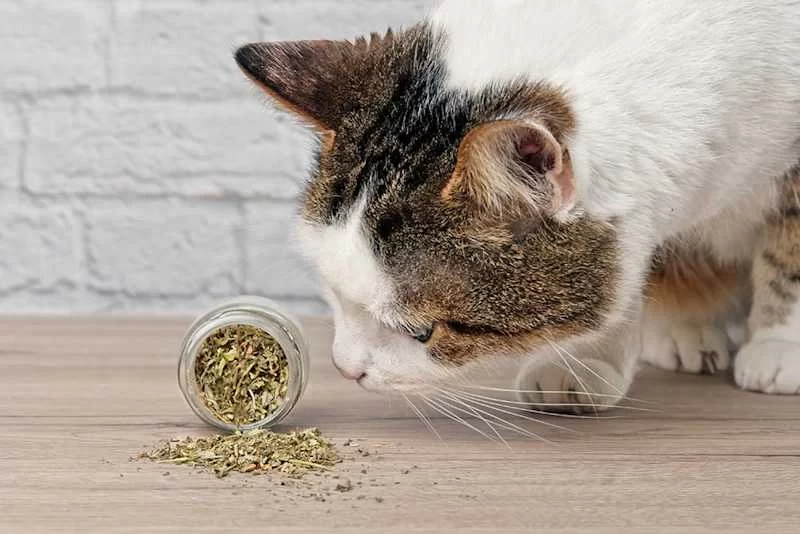Can Cats Eat Mint Leaves?
As a cat owner, it's natural to be curious about what foods and plants are safe for your furry friend. One common herb that often piques interest is mint. You may wonder: "Can cats eat mint leaves?" While mint is a popular herb in human kitchens, it might not be as safe for cats as you think. This article delves into the potential risks and benefits of mint leaves for cats, providing insight into what you should consider before letting your cat indulge in this fragrant herb.
What Is Mint and Why Is It Popular?
Mint, scientifically known as Mentha, is a genus of plants in the family Lamiaceae. Known for its fresh and cooling aroma, mint is used in a variety of products such as teas, candies, toothpaste, and essential oils. Its vibrant green leaves can add flavor to many dishes, and its scent is often associated with relaxation and fresh air. However, not all plants that humans enjoy are safe for pets, and mint is one such herb that can be harmful to cats.
Is Mint Safe for Cats?
While mint is not necessarily toxic to cats, it can be a hazard depending on how it is consumed. Cats have sensitive digestive systems, and some compounds in mint can cause gastrointestinal distress. The main concern is the essential oils found in mint, which can be irritating to a cat's stomach and intestines. These oils, such as menthol, are concentrated and can be overwhelming for your pet. If a cat eats too much mint, it may experience symptoms like:
- Vomiting
- Diarrhea
- Lethargy
- Loss of appetite
These symptoms can range from mild to severe, depending on the amount of mint consumed. It's important to be cautious and monitor your cat if it has ingested mint leaves.
How Can Mint Affect Cats' Health?
The presence of menthol and other volatile oils in mint can lead to toxicity in cats. While the mint plant itself may not be as dangerous in small amounts, mint essential oils are much more potent and can cause serious issues. Essential oils in mint, even in diluted forms, can be absorbed through your cat's skin or ingested, leading to severe reactions. Some symptoms of mint toxicity include:
- Difficulty breathing
- Increased heart rate
- Muscle tremors
- Severe drooling
- Changes in behavior
If your cat experiences any of these symptoms after being exposed to mint, it is critical to seek veterinary attention immediately. Even if the mint exposure seems minimal, the effects can be cumulative, especially if your cat has a sensitivity to certain substances.
What to Do if Your Cat Eats Mint Leaves?
If you discover that your cat has eaten mint leaves or any mint-related product, it's essential to assess the situation calmly. First, determine how much mint your cat has consumed. If it was just a small amount, your cat may experience only mild symptoms. However, if your cat has eaten a larger quantity, it may be necessary to contact your veterinarian for advice. In most cases, your vet may recommend monitoring your pet for any signs of illness and potentially bringing your cat in for a check-up.
Can Mint Be Part of Your Cat's Diet?
While mint is not inherently toxic to cats, it's generally best to avoid letting them eat mint leaves regularly. In small doses, some cats might even enjoy the scent and taste of mint. However, it's crucial to ensure that the mint is fresh and has not been treated with any chemicals or pesticides that could be harmful to your pet. Additionally, always supervise your cat if you decide to introduce any new plant material to their environment.
Safe Alternatives to Mint for Cats
If you're looking for herbs that are safe for your cat to eat, there are several alternatives to mint that can satisfy their curiosity without the risks. Some safe herbs for cats include:
- Catnip: A beloved herb for most cats, catnip contains nepetalactone, which can produce a euphoric effect in many felines.
- Cat grass: This is a mixture of various grasses, such as oat grass, that is safe for cats to eat and can aid in digestion.
- Valerian: Known for its calming properties, valerian root can also have a similar effect on cats as catnip.
- Parsley: In small amounts, parsley can provide health benefits without any major risks for cats.
These herbs are not only safe for your pet, but they also provide enrichment and stimulation for your cat's natural instincts to chew and nibble on plants. Just remember to introduce any new herbs gradually and observe how your cat reacts to ensure they are comfortable with the new addition.
What About Mint in Essential Oils or Products?
As mentioned earlier, mint essential oils can be toxic to cats, and it's crucial to avoid using mint-scented candles, sprays, or diffusers in your home. Cats' sensitive respiratory systems can easily be overwhelmed by the strong aroma of essential oils, leading to breathing problems, irritation, or poisoning. Always ensure that any products containing essential oils are kept out of reach of your pets, and avoid using them in areas where your cat spends time.
If you're using mint for personal care, like in a scented lotion or body wash, make sure your cat doesn't come into direct contact with these products, as the oils can linger on your skin or hands. If you're concerned, wash your hands thoroughly after applying any mint-based product to prevent accidental exposure to your cat.
Conclusion: Keeping Your Cat Safe From Harmful Plants
Ultimately, while mint leaves aren't necessarily toxic in small amounts, they can still pose a risk to your cat's health due to the essential oils and other compounds they contain. It's always best to err on the side of caution and avoid offering mint leaves to your cat. Instead, explore safe and enjoyable alternatives like catnip, cat grass, and valerian that are more suited to your pet's well-being. By providing your cat with safe plants and being mindful of potential hazards, you can ensure your furry friend remains happy and healthy.












